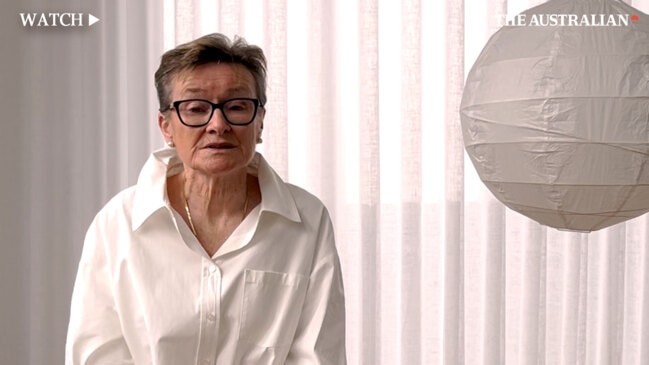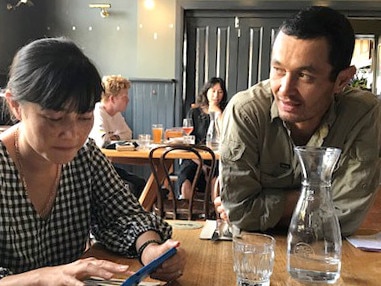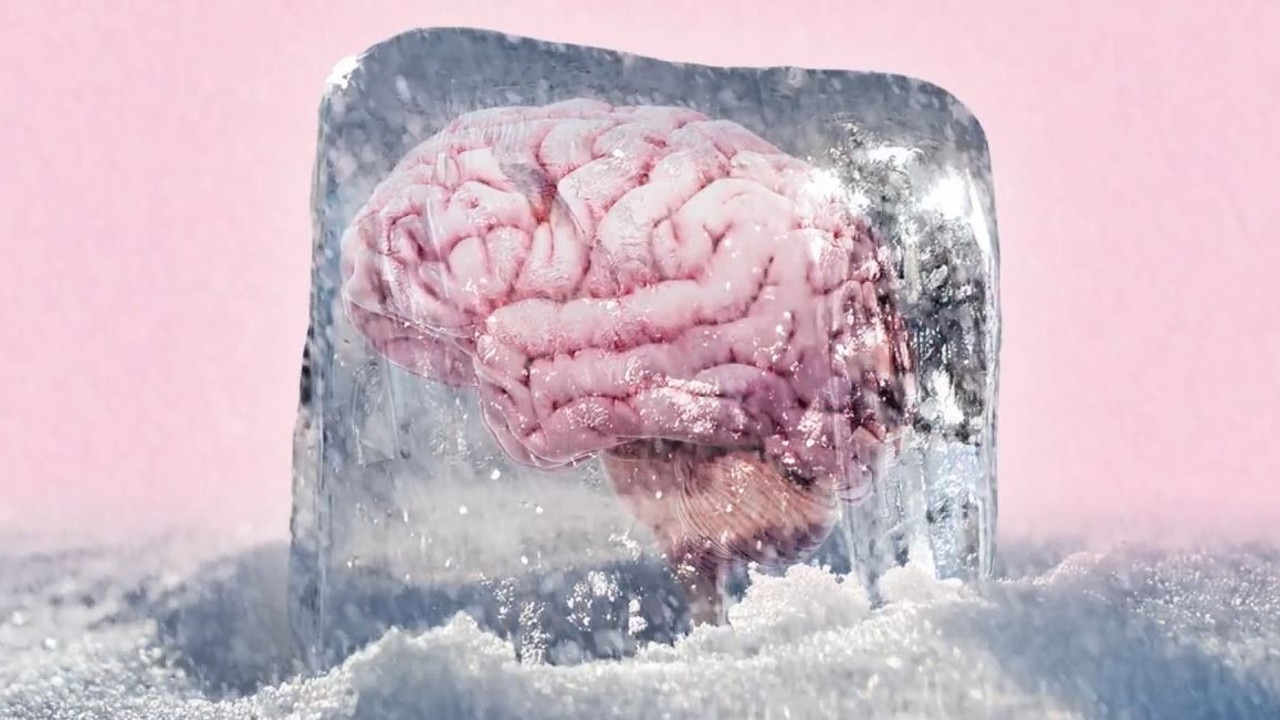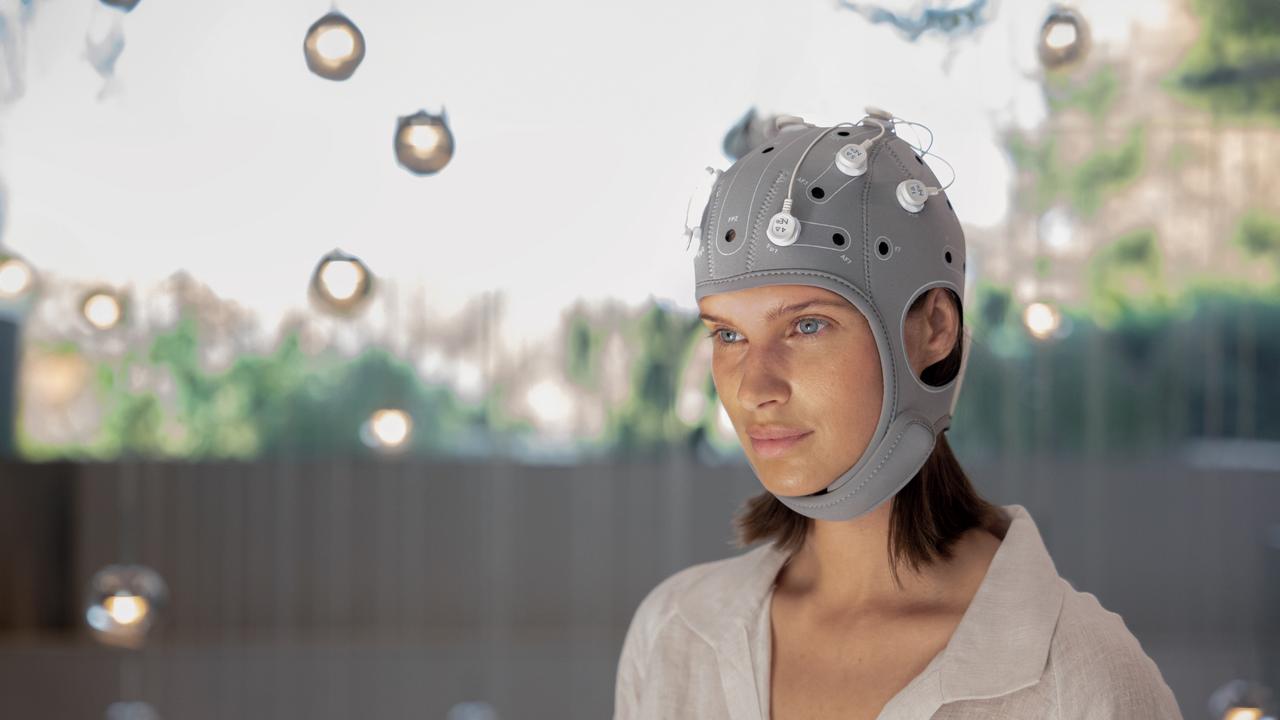Power of mum Elizabeth Young: Bondi massacre’s ripple effect to close mental health chasm
Even in the immediate wake of her daughter’s murder, along with five others at Westfield Bondi Junction, Jade Young understood that the horrific events were more than a senseless rampage. This was a systemic failure.

Elizabeth Young cannot sleep. It’s not just the permanent, wrenching absence of her eldest child, it’s also the burning anger of a mother at the fact the life of her child, a life so ordinary, was laid to waste in a few violent seconds.
It’s been four months and four days since Ms Young lost daughter Jade on an ordinary Saturday at Westfield Bondi Junction. Grief is relentless and exhausting, but it’s the futility that torments the most.
It’s the fact that the immense love of a mother – the protective instinct that arrives like a shock and a terrifying burden when a mother first comprehends the preciousness of her baby – is accompanied by acute powerlessness.
“At night when I can’t sleep, I sit up on my silly little iPad,” says Ms Young, a retired teacher.
“I was going back through stuff I had written when Jade was a baby. One night I had written about when I had given birth to her, my eldest.
“As with any parent, any mother, you kind of dive into parenthood and you don’t think much about the repercussions.

“But I can remember looking down at her when I was feeding her one night, and a kind of terror swept over me. I thought, ‘wow, I’m responsible for this little human’. That feeling never leaves you as a parent, and especially as a mother. We never stop being parents, and I don’t know why the English language doesn’t have a name for adult children, because they still are children and always will be. You’re always, always a parent.”
Even in the immediate wake of her daughter’s murder, along with five others at the Sydney eastern suburbs shopping centre where schizophrenia-afflicted Joel Cauchi stabbed 18 people, including a baby, she understood that the horrific events of April 13 were more than a senseless rampage by a young man acting out the most extreme and horrifying violence.
She saw immediately that this was not just mass murder but also systemic failure.
Now, as the slow-moving wheels of government finally begin to confront the yawning chasm in mental health services that was a likely contributor to the events at Bondi Junction, Ms Young’s role as the beating heart of the push that is finally being incrementally made for a nationally co-ordinated mental health system is becoming clear.
As a highly unusual meeting of every health and mental health minister in the country took place on Friday, a letter from the grandmother was before every politician, its words gently but passionately detailing a broken system that not only likely contributed to her daughter’s murder, but also left her son cast adrift when he tried to seek help in Hobart as grief and trauma overwhelmed him.
“One devastating event affected a family equally, in two different states; the NSW families received help immediately and freely, but the Tasmanian family returned to Hobart receiving nothing,” the letter said.
“We are all Australians, we live in a commonwealth of states and territories, we are united under one flag, yet discrepancies, disparities and inconsistencies in laws divide us, some of us are supported, others are left to their own devices, disadvantaged, unsupported, failed by our current systems.”
The ministers were presented with a commonwealth report that contained staggering data on the extent of unmet need in community supports among the severely mentally ill on Friday.
It showed an extraordinary 647,000 Australians living with either severe or moderate mental illness who required community supports were not getting what they needed. The unmet need estimate for severely ill people is higher – by about 76,500 people — than the Productivity Commission’s estimate of 154,000 people five years ago.
Various state analyses of the gap, released quietly over the past few years, have already established that a huge swath of the severely mentally ill population are left out in the cold with no psychosocial supports – sophisticated departmental analysis has put the figure at around three-quarters of these individuals.
Youth in distress
In the long sleepless nights after losing her daughter, Ms Young started reading. She read and read, and now she’s articulating with crystal-clear clarity and the unarguable authority of the bereaved, the issues that have been documented in decade after decade of mental health inquiries.
“I began to realise as I was reading that every few years there is an inquiry and a survey, and it goes on and on and on, and there are thousands and thousands of pages have been printed, and they’re all repeating the same thing,” Ms Young says. “And that is that when the asylums and the institutions were closed, when there was deinstitutionalisation of those rather dreadful Victorian places, when they were dismantled, the money that had been supporting them was supposed to be channelled into more support within society, and it might have partly happened, but it didn’t happen sufficiently.
“We have to have more funding, and there has to be a national strategy.”
When Jade Young was born in 1977 in the industrial city of Wollongong, south of Sydney, hundreds of institutions that served as places of refuge for the severely mentally ill, and sometimes as hellish places of abuse, housed the nation’s most afflicted psychiatric patients nationwide.
When Jade was six, an articulate and artistic child who would grow up to become an architect but in kindergarten was slow to learn to tie her own shoelaces, the Richmond Report was handed down in Neville Wran’s parliament, documenting extensive human rights transgressions within the institutions’ walls.

Nine years later it was followed nationally by the Burdekin report, and in the wake of that inquiry by the nation’s first federal Human Rights Commissioner, the institutions began to be cleared out, and eventually mothballed. Care in the community was the new mantra but, state by state, the infrastructure for this enormous social project was never properly planned or funded. The most acutely unwell were cast adrift.
Today, they sleep in parks, they fill our prisons, their children are removed at birth, never placed to the breast. The lucky ones are cared for behind suburban closed doors by ageing and exhausted parents. As the prevalence of mental ill-health rises alarmingly in Australia, it’s not just that the system is buckling. It’s that fundamentally, for the sickest, there is hardly a system at all.
Millions cannot access or afford any kind of mental healthcare, let alone social supports for those whose lives are blighted by psychiatric conditions. Hospitals are critically overloaded, private wards are shutting down and a workforce crisis is swamping most particularly public psychiatry.
The nation’s youth are widely distressed, with a landmark Lancet Psychiatry report this week saying mental ill-health in young people in Australia had risen by 50 per cent in the past 15 years. The authors of that report blamed global megatrends burdening young people, and cited stigma and discrimination as the root causes of disgraceful underfunding.
“I’ve been overwhelmed by the number of people contacting my office and sharing their stories of Australia’s broken mental health system,” says teal MP Allegra Spender, in whose electorate Bondi Junction falls.
“People are not just falling through the cracks, they are falling through chasms.
“We need to see a national agreement for a support system that bridges the divide between primary and acute care. This should be funded through the next National Health Reform Agreement and integrated with the NDIS.”
Society in fear
On mental health, Friday’s ministers’ meeting was focused on discussions around a national system of psychosocial supports. A proportion of the severely mentally ill are on the NDIS, if they have functional disability, but the majority are locked out as the scheme does not support medical conditions. Many of those struggling on their own are in insecure housing or homeless. Some are in jail.
Violence directed outwards by those with conditions such as schizophrenia is rare; usually the terror of paranoid delusions is focused inward. But nevertheless, there are real if unusual threats to society of a mental healthcare system that is threadbare and dysfunctional.
Even Elizabeth Young feels the psychic complexity of her advocacy rubbing up against fear and deep trauma. “I see many, many people when I go shopping, who are pathetic and I use that word in the proper sense; obviously homeless and have issues, and they seem to be just wandering around with no help,” she says. “Yet we turn away from something we don’t want to address. And I’ve done it myself. Now, I’m fearful. When I see people around the area and they’re talking to themselves and things like that, I know it’s a terrible thing, but I think ‘I wonder what’s in your backpack’.
Grief subsumes, but it also morphs into anger and bitter determination. Ms Young breathes deeply as she sips tea at the dining table in the eastern suburbs house Jade had just finished lovingly renovating; high ceilings and sheer curtains tastefully dropping to beautiful oak floors. She remembers her last happy days with her daughter in Hobart, a joint family birthday dinner in the summer for Jade and her father now crystallised in memory. There is Jade, laughing with her dad as they walk side by side eating enormous ice creams. Jade, 47, was unassuming and gentle, but the last day of her life was anything but, and now life will never ever be simple like that Hobart day.
But Elizabeth is determined not to let her daughter be just a memorial at Bondi Junction. “Mental health is not something that people politically want to talk about. And yet these complex issues are not being addressed. I feel that society let Jade down and we were powerless against that. We were just ordinary people, Jade was just an ordinary Australian woman, a working mother, and we were blown out of the water by an extraordinary act. I feel that society let her down.
“Our family has already suffered catastrophically as a result of the failures of our mental health system. That system is at crisis point now, and things have to be done. There is a need for it, a desperate need. There needs to be action, and cooperative action under the umbrella of the federal government.
“As our national anthem says, ‘with courage let us all combine’. It is my sincere hope that governments find the courage to ‘combine’ and to establish a more equitable, cohesive mental healthcare system that offers the same level of care, the same availability and funding to all Australians no matter where they live.
“That is my wish.”





